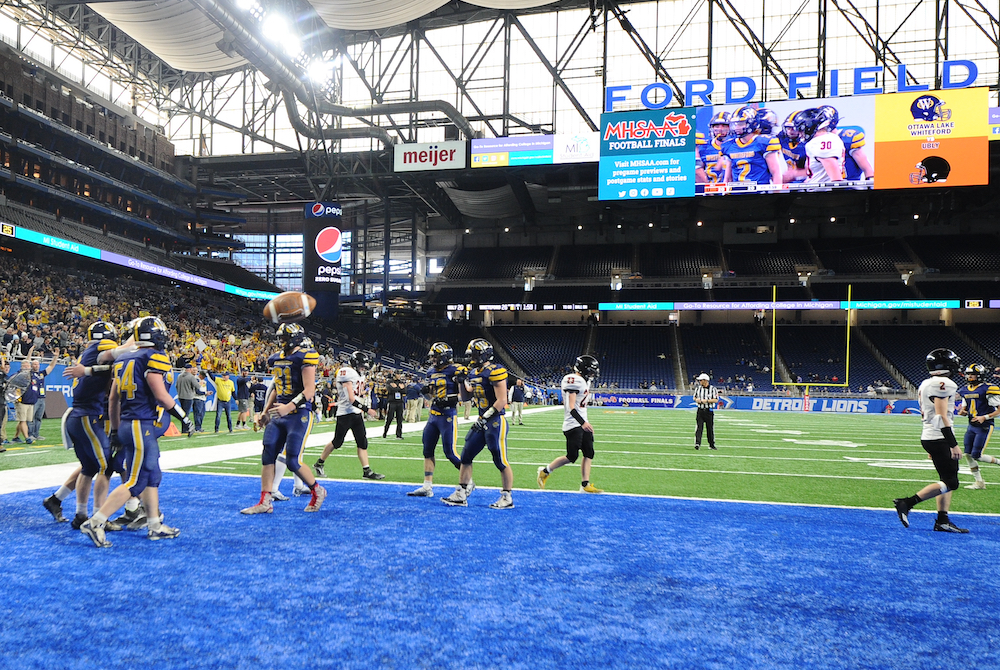
Diversionary Tactics Backfire
September 24, 2013
Placing a stone in your left shoe will take your mind off a blister on your right foot; but it does not solve the problem.
Faced with domestic starvation and civil unrest, many dictators have created external enemies in hopes of distracting their countrymen and women and rallying their support. Think of North Korea as just one of dozens of examples, recent to ancient. It has even ocurred in the US, recently and throughout our nation’s history: strawmen vilified to distract us from other more pressing problems.
Closer to home, it is something like this strategy that may be at work in many school districts as they restructure and rename schools, or resort to closings and charters. And something like this is behind the state and federal emphases on standardized testing and schools of choice.
And really close to home, it was something like this at work in football. Faced with thousands of former players with alleged concussion-related illnesses filing suit against the National Football League, and bad publicity mounting, the NFL focused instead on youth football. We told them this strategy would backfire; but a professional league with more money than many nations was not inclined to listen to little guys like us.
The NFL went state by state to advance concussion legislation which was long on symbolism and low on substance, and totally lacking any enforcement capabilities. In state after state, the NFL paraded young people with sad stories in front of state legislators looking for good headlines.
So today, 49 states have new “concussion” laws; and participation rates in youth football are plummeting. Big surprise. But ironically, it’s plummeting at a time when school-sponsored football is the safest it has been since it was introduced to schools 100 years ago. The equipment is the best ever, the rules the most protective ever, the coaches and officials the best trained and most safety conscious ever.
Take a look at this quick video that tells the true story about school-sponsored football.

Set, Ready, Challenge: 11-Player Football Finals Challenges New in 2022
By
Jon Ross
MHSAA Director of Broadcast Properties
November 25, 2022
New this year at the MHSAA 11-Player Football Finals is the opportunity for head coaches to challenge a call.
In previous years, all potential scoring plays and potential turnovers were automatically reviewed. That process will continue and now, under a limited set of circumstances, the head coach can challenge calls.
To do so, the head coach must first call a timeout. If a team has no timeouts remaining, they are not able to challenge a call. Challenges must be presented to the officials immediately after the timeout is granted. If the challenge is successful, the team will get its timeout back and have the ability to challenge one more call during regulation. A second successful challenge will not result in the ability to challenge a third call.
The following plays are reviewable by challenge:
- Complete/incomplete passes
- Runner/receiver in/out of bounds
- Runner ruled not down
- Forward progress spot as it relates to the yard to gain
- First touching of a kick
- Recovery of a ball in/out of bounds
- Forward/backward pass
- Penalties called on the field only for:
- Illegal forward pass
- Targeting or illegal helmet contact
- Pass interference only as it relates to the pass being previously tipped
NOTE: All other penalties called on the field are not reviewable. These include, but are not limited to: illegal formation, ineligible receivers downfield, illegal participation, illegal substitution or delay of game. If a penalty is not called by the officials on the field, the play can never be reviewed to retroactively call a penalty.
In overtime, challenges – like timeouts – reset. Each team has the ability to challenge one call for the entirety of overtime, but must have a timeout to use to do so. A successful challenge in overtime will not result in the ability to challenge a second call.
If a play is overturned in regulation or overtime, the replay officials will correct all aspects of the play including time, position of the ball and whether the clock will be started on the RFP or snap. The game clock or play clock may be reviewed only as it directly relates to the overturning of a call on the field.
There is no change to the review of potential scoring and potential turnover plays. Those plays are automatically looked at by the replay official and replay assistant. If the replay official can confirm the ruling on the field without stopping play, the official will do so. If more time is needed to review the play, the on-field referee will announce that and then will announce the replay official’s decision. For a play to be reversed, there must be indisputable video evidence that shows the original call was incorrect. Every attempt will be made to complete the review process in 90 seconds or less.
The addition of the coach’s challenge was approved by the MHSAA’s Representative Council at its May 2022 meeting.

